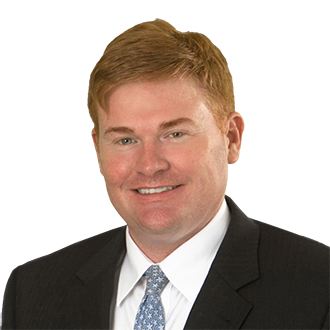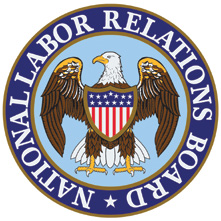By Frank L. Day Jr. and Mollie K. Wildmann
On June 14, 2019, the National Labor Relations Board (“NLRB” or the “Board”) ruled that employers may prohibit nonemployee union representatives from soliciting or promoting union membership within common areas of an employer’s business – such as public restaurants and cafeterias – as long as the employer does so in a non-discriminatory manner.
This decision provides employers with greater control over the use of their facilities and explicitly overrules decades-old precedent inconsistent with this determination.
Why it Matters:
Public spaces in hospitals, restaurants, casinos, and hotels are often targeted by union representatives to solicit membership or organize on employers’ property. During union organizing initiatives or difficult labor negotiations, hospitals, specifically, are increasingly pressured to permit various types of access to their facilities. Whether employers can limit union solicitation, including restricting distribution of union literature and access to the employer’s premises, depends in large part on whether the solicitation is undertaken by non-employees or employees.
For almost 40 years, the NLRB allowed solicitation and other promotional activities by non-employee union representatives inside cafeterias, restaurants, and other areas open to the general public so long as the representatives were not “disruptive.” However, under UPMC, employers now can bar union representatives from engaging in solicitation or promotional activity so long as the employer similarly prohibits all forms of solicitation or promotional activity by non-employees in these spaces.
Previous Rulings:
Over 60 years ago, the Supreme Court ruled in NLRB v. Babcock, 351 U.S. 105 (1956), that employers may prohibit nonemployee union organizers from promoting their union on company property, as long as the union has other available channels of communication (i.e. the inaccessibility exception) and the employer prohibits similar promotions by other organizations (i.e. the discrimination exception).
In the decades that followed, the Babcock standard developed another exception, the “public space” exception at issue in UPMC. The “public space” exception allowed nonemployee union organizers access to a portion of the employer’s private property open to the public, such as a cafeteria or restaurant. Specifically, nonemployee union organizers could not be denied access to employer cafeterias and restaurants open to the public so long as the organizers used the area in a fashion consistent with its intended use and were not disruptive.
The Board’s Decision in UPMC:
In UPMC, two nonemployee union representatives sat in the hospital cafeteria with a group of employees and discussed union campaign matters. The union representatives displayed union flyers and pins on the tables where they were seated. After the union representatives had been in the cafeteria for over an hour, hospital security requested the nonemployee union representatives to leave, as the hospital had an established practice of removing nonemployees engaged in promotional activity in the cafeteria. The union representatives refused to leave and, eventually, six police officers escorted the union representatives out of the cafeteria.
The Board found the removal lawful because there was no evidence that the hospital knowingly permitted other solicitation or promotional activity inside the cafeteria. To the contrary, the hospital presented evidence that it had removed other non-employees for engaging in promotional activity in the cafeteria, including removing a spiritual group that was distributing literature and an individual who was soliciting money.
Thus, expressly overruling the “public space” exception, the Board ruled:
an employer does not have a duty to allow the use of its facility by nonemployees for promotional or organizational activity. The fact that a cafeteria located on the employer’s private property is open to the public does not mean that an employer must allow any nonemployee access for any purpose.
Bottom Line:
The Board’s decision in UPMC provides employers with public spaces, such as restaurants and cafeterias, with greater control over their property. However, thoughtful and careful drafting and implementation of employer policies in the solicitation, distribution, and access areas remain critical in avoiding unnecessary legal entanglement, including having to respond to Unfair Labor Practice Charges under the NLRA.
If you have any questions regarding the Board’s decision or any other employment issue, please contact the authors of this Article, Frank Day, fday@fordharrison.com, partner in FordHarrison’s Memphis office, or Mollie Wildmann, mwildmann@fordharrison.com, associate in its Memphis office. Of course, you may also contact the FordHarrison attorney with whom you usually work.

Frank L. Day, Partner
FordHarrison
fday@fordharrison.com
www.fordharrison.com

Mollie K. Wildman, Associate
FordHarrison
mwildman@fordharrison.com
www.fordharrison.com
